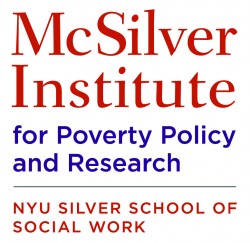The U.S. Department of Agriculture defines food insecurity as a “household-level economic and social condition of limited or uncertain access to adequate food.” For children affected by food insecurity, access to school lunch has played an integral role in reducing hunger and nutritional deficits.
Despite the role school lunches have played in reducing hunger and addressing learning deficits, school systems and eligible families often do not utilize them to their full potential. A contributing factor to their low utilization could be the stigma associated with receiving public assistance: many school children have experienced shaming for receiving free school meals.
How can schools correct the stigma associated with accessing government funded school meals? Perhaps schools could provide universally free school meals to all children, with all students eligible despite income level.
The National School Lunch Program (NSLP) is available to children whose families are living at or below 130 percent of the federal poverty line. The program provides low-income children with a nutritious lunch, and sometimes breakfast, helping to address the issue of food insecurity.
 In New York City, Schools Chancellor Carmen Fariña and Public Advocate Tish James have been pushing the Department of Education to fund free meals for all school children. Both Fariña and James have cited the program’s potential in destigmatizing poverty while providing the necessary nutrition to enable children to succeed academically.
In New York City, Schools Chancellor Carmen Fariña and Public Advocate Tish James have been pushing the Department of Education to fund free meals for all school children. Both Fariña and James have cited the program’s potential in destigmatizing poverty while providing the necessary nutrition to enable children to succeed academically.
As New York City fights for universally free lunches in its school system, Colorado is already moving forward with implementing universally free school meals. Along with six other states and the District of Columbia, some school districts in Colorado have made free school breakfast and lunches available to all children regardless of income. The significant participation in school meal programs where available demonstrate the positive effects of such a policy.
Beyond the benefits seen by low-income students, a recent study suggested that all students, regardless of income, demonstrated academic achievement and increased attendance following the implementation of the program. Along with the unfolding outcomes within school districts that have implemented universal meal programs, this study suggests that the expansion of NSLP may begin to provide benefits to all school children while dismantling the stigma of poverty.
Direct Service Implications
In 2011, approximately 16.7 million children lived in food insecure homes. For these children, free school meals can provide nutrition crucial to their development and their academic advancement. By failing to provide children with access to free meals or other forms of social support, school systems risk exacerbating the hunger experienced by their students.
While universalizing school lunches would decrease food insecurity among children, school systems and advocates must take further steps. In Wisconsin, efforts have been put forth to tackle the issues students are facing outside of the school setting. Students in the town of Fond du Lac have become increasingly eligible for free meals, reflective of the rising number of Wisconsin families living in poverty. The school system has responded by allocating more resources to services designed to help students meet their needs. Wisconsin will be implementing a program that will provide universally free meals to schools with high poverty levels; schools with at least 40 percent of their students living in poverty will be eligible.
For direct service providers in education and social services, the issue of food insecurity is of the most utmost importance and must be confronted, as affected children risk becoming locked in pervasive and devastating poverty.
Courtesy of McSilver Institute of Poverty Policy and Research who has kindly given SJS permission to syndicate this piece.
Disclaimer: The views and opinions expressed in the Policy News Briefs are not necessarily the views of the McSilver Institute for Poverty Policy and Research or NYU’s Silver School of Social Work. If you have comments or suggestions about this service, contact us at mcsilver@nyu.edu.
Our authors want to hear from you! Click to leave a comment
Related Posts



